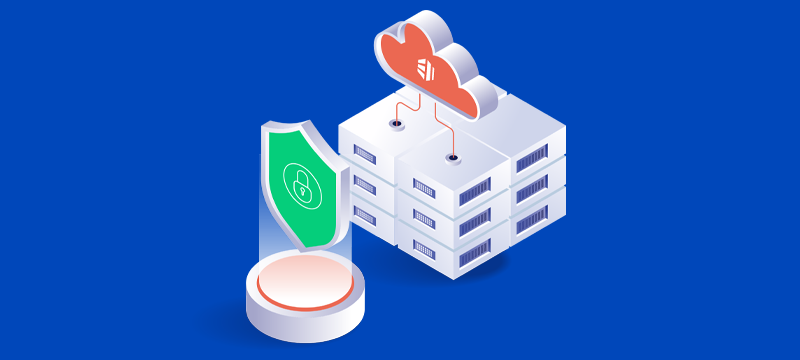One of the critical aspects of cloud computing is the security of the data stored in cloud databases. With cyber threats continually evolving, organisations need to have a comprehensive plan for cloud database security. In this post, we will discuss the key measures needed to safeguard your cloud databases to ensure the confidentiality, integrity and availability of your critical business data.
Robust authentication and access control
The starting point for creating any strong security plan is a robust authentication and access control policy. Implementing multi-factor authentication (MFA) is crucial to prevent unauthorised access to cloud databases and its success at doing so has led to its wide adoption across many sectors. Most companies now use a combination of strong passwords, biometric authentication (e.g., fingerprints, facial recognition and voice recognition) and one-time passcodes to enhance their security.
Additionally, you should use role-based access control (RBAC) to restrict user privileges and limit access to data based on employees’ job roles. This way, by ensuring employees only have access to the information they need to do their jobs, you limit the ability of human error, hacking and malicious insiders from causing wide-scale problems. It also means you are able to log who accesses data and when.
Data encryption
Data encryption is another fundamental aspect of cloud database security that can help you minimise the risk of data breaches and maintain compliance with regulations. By encrypting data, you can ensure that even if unauthorised individuals gain access to your database, they will be unable to decode the information. While encryption in transit is common, implementing encryption at rest provides an additional layer of protection for data held in storage or backups. To maintain security and the integrity of the encryption process, encryption keys should be tightly managed and regularly rotated.
Regular security audits and monitoring
Continuous monitoring and periodic security audits are essential to help you identify potential vulnerabilities and proactively address any security risks. By utilising firewalls and intrusion detection and prevention systems (IDS/IPS), you can help detect and mitigate unauthorised activities before they become an issue. Real-time log monitoring and analysis, meanwhile, enables the prompt detection of any suspicious behaviour or unusual patterns, allowing you to respond swiftly and prevent potential breaches. Additionally, carrying out regular vulnerability assessments and penetration tests is important for helping you to evaluate the effectiveness of your existing security measures and identify those that may need improvement.
Data backup and disaster recovery
Unfortunately, no organisation is immune to data loss and for this reason, data backup and disaster recovery strategies are essential for mitigating the impact of security incidents or system failures. Backups of your cloud databases should be performed at the frequency your company needs, and these should be stored in geographically diverse locations to prevent data loss. This way, even if your entire data centre suffers a catastrophic loss, your backups will still be available.
Implementing a robust disaster recovery plan ensures business continuity by allowing organisations to recover data and restore operations quickly. The latest backup solutions now enable you to schedule backups to take place at the frequency you need, these are then stored remotely, encrypted and checked for integrity.
Security patch management
Keeping cloud database systems up to date with the latest security patches is critical to prevent known vulnerabilities from being exploited. Timely patch management helps you address newly discovered security flaws and protects your system against emerging threats. To ensure you do not miss an update, it is essential to regularly monitor vendor security advisories so you know when important patches are released and can install them promptly. Even better, by making use of automated patch management tools, you can streamline this process and ensure that all systems are kept up to date.
The role of the cloud provider
Cloud providers can play an important role in helping companies protect their cloud databases. Look for managed solutions where OS updates and patching are done for you, and where your systems are protected by robust firewalls, intrusion and malware prevention, automated backups and other security features.
Conclusion
If you rely on cloud computing for your company’s operations, then keeping your cloud databases secure is vital. By implementing a comprehensive plan that includes robust authentication, encryption, monitoring, data backup, disaster recovery and patch management, you can fortify your cloud database against cyber threats, human error and infrastructure failures. By adopting this proactive approach, you can ensure the confidentiality, integrity and availability of critical data, safeguarding it from unauthorised access and potential breaches.
Looking for exceptional managed cloud hosting with security built-in? Check out our Secure Cloud Servers page.



